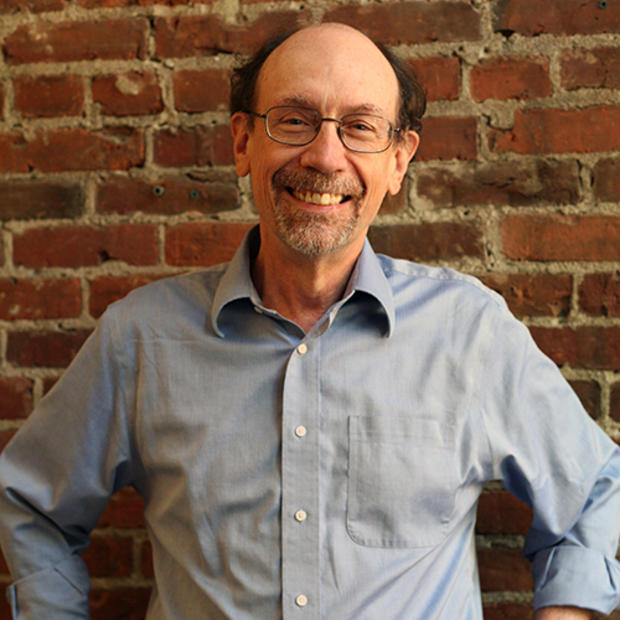The Seattle City Council faces a South Lake Union decision that has broader meaning for the city's interest in more housing opportunities and better livability. On Monday, the council takes up the question of how much affordable housing to require from developers in return for the bonanza of new construction opportunities.
The critical issue before the council is how much to require that developers pay toward affordable housing in order to build higher in South Lake Union. And, thanks to a push from Councilmember Nick Licata, the council also has a chance to push developers to provide workforce-priced housing in South Lake Union rather than simply writing a check toward low-income housing elsewhere in the city.
Most options that the council has considered so far would require setting aside less than 5 percent of units for people making less than 80 percent of the region's median income. But Licata wants to see a figure that is closer to 15 percent. Council staff put together information showing that Boston, Denver, San Francisco and Sacramento have requirements in the 10 to 20 percent range.
Licata's proposal (he provides lots of details here and here) would move the city in a direction that it needs to go. Now.
Seattle has watched for years as middle and lower-income people are forced to commute from outer suburbs to jobs in construction, service, building maintenance and more. It knows that lower-income residents and families are increasingly pushed to south King County. Council members and Mayor Mike McGinn are sharply and properly aware that the city, historically a place for minorities and the working class, must emphasize race and social justice in all its policies. They are committed to the city's Race and Social Justice Initiative. And they are committed to combatting climate change, achieving carbon neutrality and improving the options for walking, biking and taking transit to work.
Those goals would be well met by approving a rezone that allows greater density in South Lake Union — as long as the revisions also provide for significantly more affordable housing. Otherwise, the city will be doing what it always does: Facilitating the latest economic boom with only hurried regard for the Seattle's own long-term needs, its own commitments to the public and its sense of itself.
City political leaders face huge pressures on this issue, for completely understandable reasons. The economy is going strong and there is big demand for additional housing. Powerful economic interests — ones that have contributed significantly to the city — are ready to go forward with residential and office development: Vulcan, Amazon, the University of Washington, The Seattle Times.
In a well-argued editorial, The Times recently said that the city should encourage the excitement in South Lake Union and stand pat on its fees for now. As the Times noted, there's a task force appointed by the mayor to look at the issue later. And acting quickly would risk squelching some investment or driving it elsewhere. The Times said that "the prudent course for the council" is to approve the rezone without any fee increase.
The editorial page knows its target audience: The Seattle City Council is remarkably well practiced in the art of prudence.
Some of the talk is that Amazon or others might look at the Eastside. An overly prudent city council is surely taking note, and worrying. But what would be the horror in that? Economic prosperity in a global economy depends on a strong region. In the long run, Bellevue's gain is Seattle's too, and vice versa. The environment? The Eastside is much more focused on sustainability than ever before, as Bellevue's urban-centric redevelopment plans demonstrate. Social justice? The Eastside has become a center of diversity.
The council should have no fear of the "stare-down" with Jeff Bezos that The Times warned it should avoid or the possibility that Seattle will lose out on some unknown percentage of a building boom. Amazon is going to stay in Seattle, or the Eastside, or not. You can spend generations catering to a company and have it up and move to Chicago.
There are other serious objections, though, within the council itself. Council President Sally Clark says the "Licata leap" might turn into a tumble. But she also cares about his point. She and Councilmember Tim Burgess are looking at somewhat steeper demands for affordable housing. She declined to be specific. Councilmember Richard Conlin, who ably chaired committee discussions on South Lake Union, said he expects "modest" modifications in a fee charged to developers for affordable housing. The fee largely determines how much affordable housing can be built.
But Conlin dismisses Licata's proposal as "without significant documentation." He points out that encouraging construction of affordable housing can be extremely complicated. San Francisco charges a lot, but has seen very little improvement in terms of meeting overall needs, he said. And even when cities attack the problem for low and median-income families, those who make just a little bit more than the low-income mark can be left in the lurch.
In addition to the mayor's task force, Clark said the council plans to put together its own group.
That's the solid but plodding Seattle way. Everyone wants to do some good, but there is little chance for a breakthrough. And there's every chance that new priorities will slow or deter future action.
If city government broke out of its cautious habits once in a while, it might find it wins some of its bets. In this case, the strength of Seattle's housing and tech sectors offer strong reasons to believe that the council has room to be assertive.
The council also might find that if it acts boldly now, it will drive more attention toward the issue later. Even if investors, developers and companies are put off now, the council would have a good chance of pushing them to contribute more creatively to solutions in the future.
Crosscut editorial intern Sarah Radmer provided research for this article.



